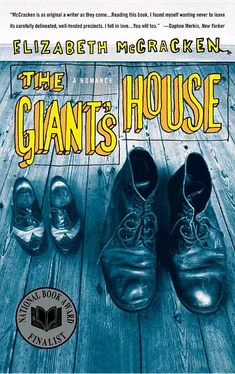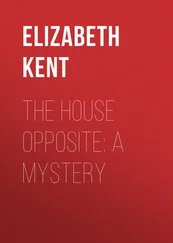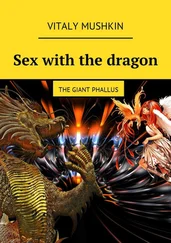The tile teared up at a hint of moisture; the slender-throated plumbing choked on the daintiest morsel. The roof leaked. There were staircases that led nowhere.
I came to the job fresh from library science school. Purgatory would have seemed quite an adequate setup to me then; I would have happily issued cards to the not-quite-condemned and the not-yet-blessed and thought it a vast improvement over the dullness of catalog class. I loved that building when I first met it; I suppose I continued to love it the way a woman will love a husband who sticks around while she silently prays he will leave or die. Indeed, until 1950 the library occupied much of my heart and mind. When we were apart, I wondered what wrongheaded thing it would insist upon doing in my absence (bursting a pipe, inviting birds through broken windows); when we were together, I cursed it and made apologies for its behavior to visitors. Before I met James Carlson Sweatt, the library was my best comfort and company. I was a fool for that library.
We are fools for who will have us.
I did see other people. My patrons, for instance. Pharmacists are the same, I guess — you learn the dirty little secrets of what’s wrong with your customers and what might possibly cure it: shy men who want to read about wars, any war at all; fading women who need a weekly romance. Plenty of people came in more than once a week. Mr. Mackintosh, a widower, fancied himself a writer and wanted me to read his stories. I read one; it was about a stripper. Mrs. Carson was on her fourth husband; I wondered when she had the time to read her best sellers. A nice couple brought in pictures of their dogs, fox-haired terriers, natty dressers — the dogs, I mean, not the couple. My landlord, Gary, a tragic man whose wife had left him eight years before, came to read magazines once a week.
I had my co-workers, too, who some days I forget. I see myself alone in the library, alone with the patrons. Pride does this. I remember myself alone with James when he was dying, too, although that isn’t true either; there were always other visitors. At the library I worked with two other people: Astoria Peck and Darla Foster, both part-timers. Darla was a twenty-year-old who’d have been better suited to waitressing. I don’t know why I hired her, other than the fact she was my sad landlord’s daughter. Darla shelved the books, put the daily papers on the forked wooden spines that rested in metal stands, worked the front desk when I was busy. She had a rear end as big as an open dictionary and a bad attitude.
Astoria Peck handled most of the library’s technical processes — repairing books or sending them out to a bindery, if they could be saved at all; cataloguing; billing. Like me, she was a librarian (that is, she had a master’s in library science) and had for many years worked at the elementary school. Once she hit forty, she said, she got tired of the smell of children.
“They smell like bad cookies,” she told me. “Go ahead, get a good whiff.”
I demurred, which was never enough for Astoria. The next child through the door prompted her to nudge me—“Go ahead.”
Astoria had been told once that she should go to Hollywood; she never did, but she also never forgot the suggestion, and wore her hair and makeup like a movie star. She was the type of person who relied very much on what other people told her about herself. She’d been informed, variously, that she was a card, an enigma, a heartless woman. Her mood depended on what was last said to her; it prevailed until the next assessment. Her husband told her she had beautiful legs, and she was happy; her niece told her she had big ears, and she was devastated.
“I have big ears,” she told me mournfully. “I’m a big-eared woman.”
Astoria and I were bound together by our terrible struggles with the library building and the troubles it caused with the town manager, who, when we wanted our book budget increased, said that he’d been to the library, and the shelves were already full. He’d look at a repair bill and say, “What did they fix that toilet with, gold?” Between the building, which was falling to pieces, and the town manager, who was solid rock, we were left to setting out buckets for leaks and fixing wobbly tables with books we were going to throw out anyhow, books that had not circulated in thirty years. For some reason, though, a table leg set down on a dust jacket seemed to patrons the highest recommendation; they wanted to take those books out, accused us of neglecting great works.
Mrs. Sweatt started coming to the library for herself, for romance novels and women’s magazines. She nodded at me shyly, sneezed in the dust. You could hear her sneeze in the stacks from anywhere in the library; it sounded like a reproach.
“What is her name?” I asked Astoria. “She calls me Peggy, but she hasn’t even told me what her Christian name is.”
“That’s it,” Astoria said. “That’s what everyone calls her. I guess when she and her husband got married, they called each other Mister and Missus — you know, like any honeymoon couple — and they just never got out of the habit. Then other people picked up on it.”
“She’s not from around here.”
“No,” said Astoria. “Heavens, no. Midwest somewhere. Came out on vacation with her parents, met Mr. Sweatt, stayed. He could have swept any girl off her feet, that one. Charming, a fast talker. Nobody could figure out what he saw in her.”
“Well,” I said.
“I mean, she was this sort of tragic character — even then she was, I’m not sure why — and Mr. Sweatt was a boisterous, friendly guy. A bad guy who made himself seem nice sometimes, or the other way around, you know the type?”
No, I said, I didn’t.
“He left. About six years ago, maybe. Just disappeared out west. That’s where ex-husbands go, right? There must be whole ranches of ex-husbands out there, leaning on corrals and drinking too much gin.” She laughed. “And now here’s poor Mrs. Sweatt. Drinking a little too much herself, actually.”
“Oh.”
“She thinks it’s a secret. But listen to her purse when she walks by. Slosh, slosh.”
“I don’t listen to purses,” I said. “Purses are a private matter.”
Shy, sensitive-to-dust Mrs. Sweatt. Her arms and legs were plump, as if her heart did not want them to get too far away, and sometimes she seemed to limp. I thought her marriage must never have been happy; I couldn’t imagine her enjoying the company of a boisterous man. And if you were boisterous, it would be hard not to torment Mrs. Sweatt, who did not have a sense of humor in the way most people do not have a sense of French.

In our town, we did not measure time in years, but in winters. Summers were debatable daylight; winters were definite, like night. In the dark privacy of winter Brewsterville’s citizens were more likely to drink, weep, have affairs, tell off-color jokes, let themselves go.
Then summer came around again, and they ironed their best pants, sewed on buttons popped by eagerness or an extra five pounds, and got back to work.
It wasn’t that nothing happened during tourist season, simply that summers were so crowded with quotidian incidents as to appear identical to one another. The tourists came in. Every year one took a heart attack in a restaurant; several were accused (rightly or wrongly) of shoplifting a souvenir ashtray from one of the souvenir ashtray emporiums; dozens tried to seduce coffee shop waitresses and succeeded or didn’t, depending on the coffee shop; and an even hundred tried to get library cards good for one week, despite living in California, despite a remarkable lack of identification. And then the summer ended, and the tourists left, and it was as if the town itself had just returned from a vacation somewhere far off, having never sent a postcard to keep all of us up-to-date on its seasonal goings-on.
Читать дальше













